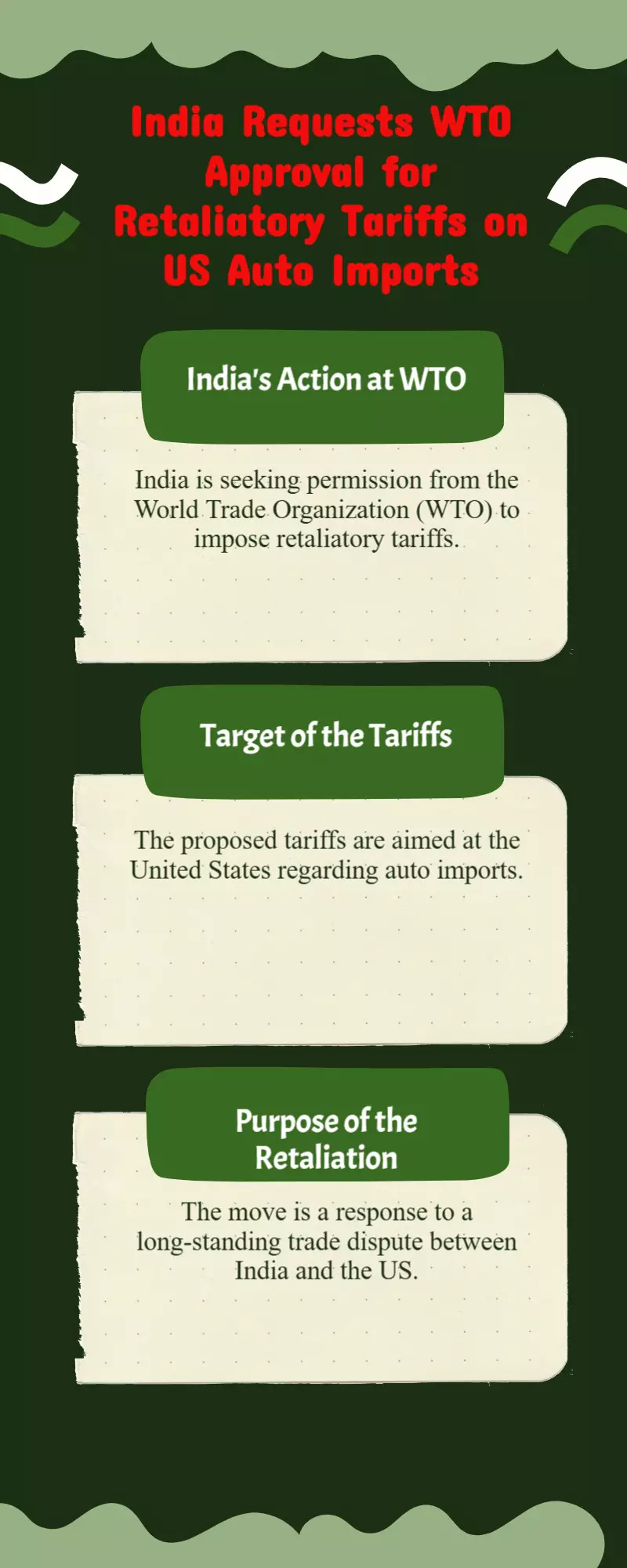India seeks WTO nod to impose retaliatory tariffs on US auto imports

By : Krishna Mishra
India Proposes Retaliatory Tariffs on US Auto Imports at WTO
New Delhi, July 5: India has formally notified the World Trade Organization (WTO) of its intent to impose retaliatory duties on selected US goods in response to Washington’s unilateral tariff hikes on Indian automobile parts. The move comes under WTO’s Safeguards Agreement, signaling a significant escalation in the ongoing trade tensions between the two countries.
According to the notification circulated at India's request, the proposed countermeasures would include increased tariffs on selected American products, matching the estimated $723.75 million in annual duties the US now collects due to its new import restrictions.
🚗 Background: US Auto Tariffs Spark Trade Dispute
On March 26, 2025, the US imposed a 25% ad valorem duty on imports of passenger vehicles, light trucks, and certain auto parts from India, citing safeguard measures. These duties took effect on May 3 and are set for an unlimited duration, though they haven’t been officially notified to the WTO.
India has challenged the move, arguing that the US’s action violates the WTO’s General Agreement on Tariffs and Trade (GATT) 1994, and the Agreement on Safeguards.
“The US has not engaged in consultations as requested, so India reserves the right to suspend concessions or obligations under WTO rules,” the notification states.
📉 Trade Impact and India’s Response
The safeguard duties impact Indian exports worth $2.89 billion annually. In response, India is considering equivalent retaliatory duties on US-origin goods, aiming to match the revenue loss.
India has reserved the right to modify, withdraw, or expand the product list and tariffs based on future developments.
This is not the first such move. Last month, India took similar steps against US tariffs on steel and aluminium, marking a pattern in how India is pushing back against what it sees as unfair trade practices.
⚖️ Strategic Move or Warning Shot?
According to the Global Trade Research Initiative (GTRI), the notification is both legal and strategic, asserting India's rights under international trade law.
“This proposed retaliation—worth over $700 million—is proportionate to the injury caused,” said GTRI founder Ajay Srivastava. However, he noted that India may choose not to enforce the tariffs immediately, citing past restraint in similar cases involving US steel duties.
With India and the US actively negotiating a trade deal, and former President Donald Trump suggesting a “different kind of deal” with lower tariffs, analysts believe this step might be more of a negotiation tactic than a firm decision to retaliate.
